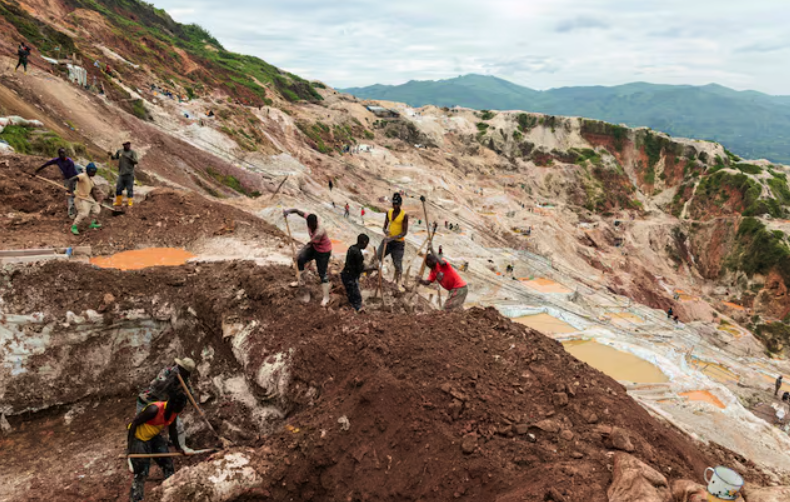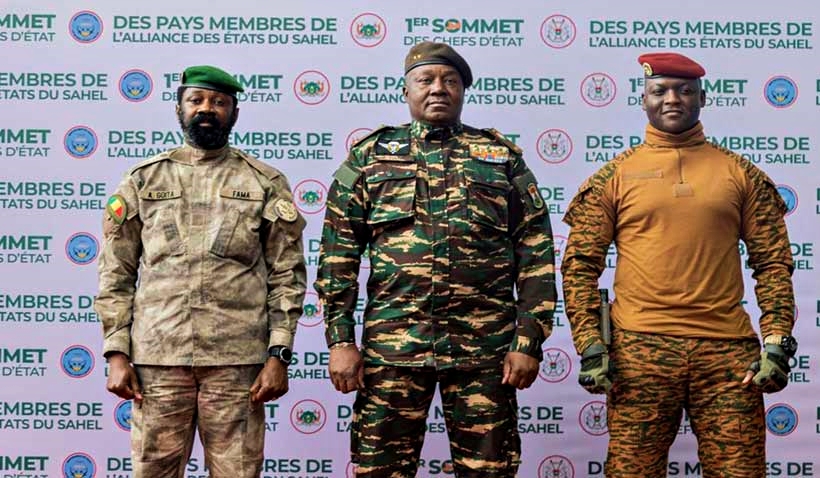Gambiaj.com – (NIAMEY, Niger) – The military-led governments of Burkina Faso, Mali, and Niger have reaffirmed their decision to withdraw from the Economic Community of West African States (ECOWAS), describing it as “irreversible.” The announcement was made on Friday, just two days before an ECOWAS summit in Abuja, Nigeria, aimed at addressing the contentious issue.
The three nations, now united under the Alliance of Sahel States (AES), first declared their intention to leave ECOWAS in January 2024, citing dissatisfaction with what they perceive as undue influence from France, the former colonial power. The AES consists of military juntas hostile to French involvement and seeks to chart an independent course for its members.
In a joint statement following a ministerial meeting in Niamey, the AES reaffirmed its stance: “While recalling the irreversible decision of the States of the Confederation to withdraw from ECOWAS, the ministers urge (…) to continue discussions aimed at agreeing on exit arrangements in the interest of the populations of the Confederation.”
Departure Timetable
Per ECOWAS regulations, the withdrawal process takes one year, meaning the AES countries’ departure will formally take effect in January 2025. However, the ongoing disengagement raises significant questions about the future of West African integration, particularly concerning the free movement of people and goods. These were key topics at the Niamey meeting.
The AES spans a vast landlocked region with a combined population of 72 million. Its leaders have taken steps to strengthen their confederation, including eliminating roaming charges for telephone communication, harmonizing travel and identity documents, and discussing a potential withdrawal from the CFA franc currency.
Tensions with ECOWAS
The relationship between ECOWAS and the AES fractured following a coup in Niger in July 2023, the sixth military takeover in the region in three years. ECOWAS responded to the coup with economic sanctions and threats of military intervention. Although sanctions have since been lifted, tensions remain high.
ECOWAS appointed Senegalese President Bassirou Diomaye Faye as a mediator to negotiate the AES’s continued membership. Earlier this week, Faye reported progress in his mission. However, the AES countries appear steadfast in their decision, with no plans to send representatives to Sunday’s summit in Abuja.
The AES has criticized ECOWAS for what it sees as a failure to adequately address the region’s challenges, particularly the decade-long jihadist insurgency that has claimed tens of thousands of lives in the Sahel. At the same time, the AES nations have sought closer ties with Russia and other international partners they deem more “sincere.”
The departure of Burkina Faso, Mali, and Niger from ECOWAS could have profound economic and political consequences for the region. The three nations’ withdrawal threatens to disrupt trade and mobility across West Africa and raises questions about the future of collective regional governance.
For now, the AES is focused on solidifying its confederation while asserting its independence from ECOWAS. Whether Sunday’s ECOWAS summit will yield a path toward reconciliation remains uncertain, but the AES’s latest declaration leaves little room for optimism about a reversal of their decision.










